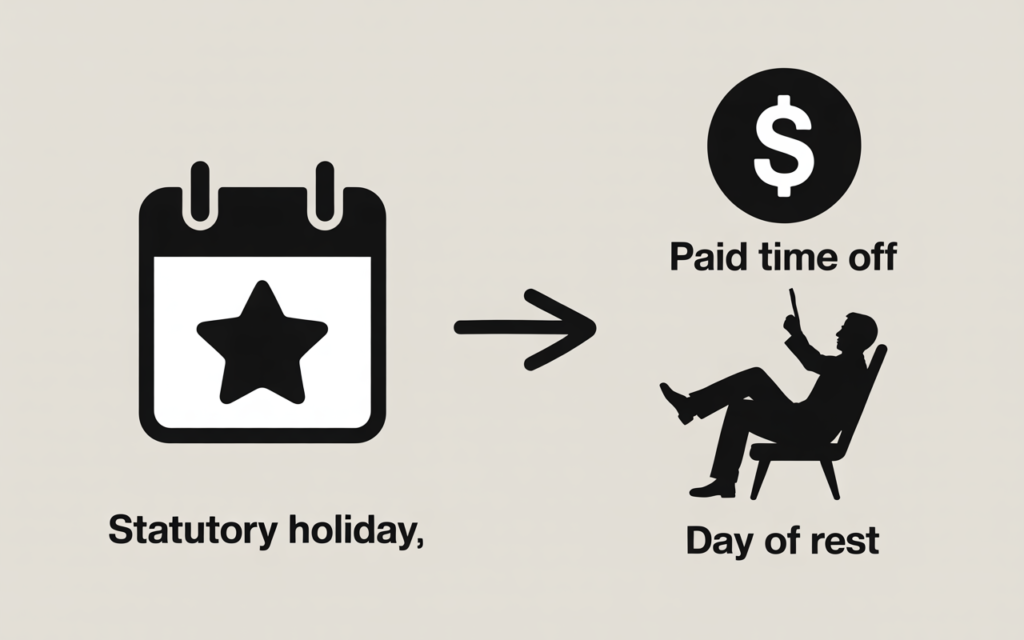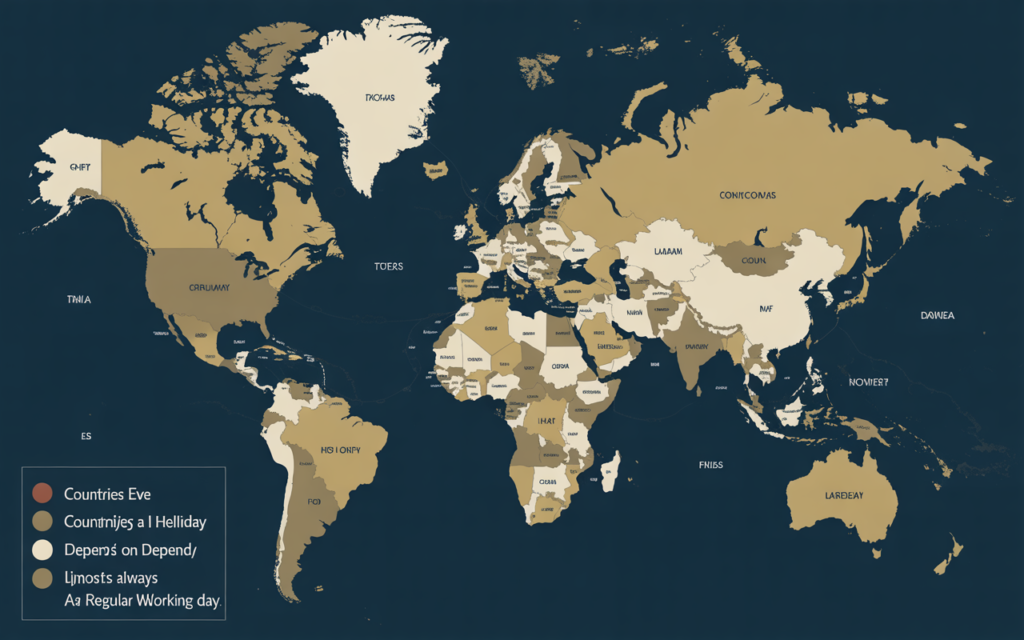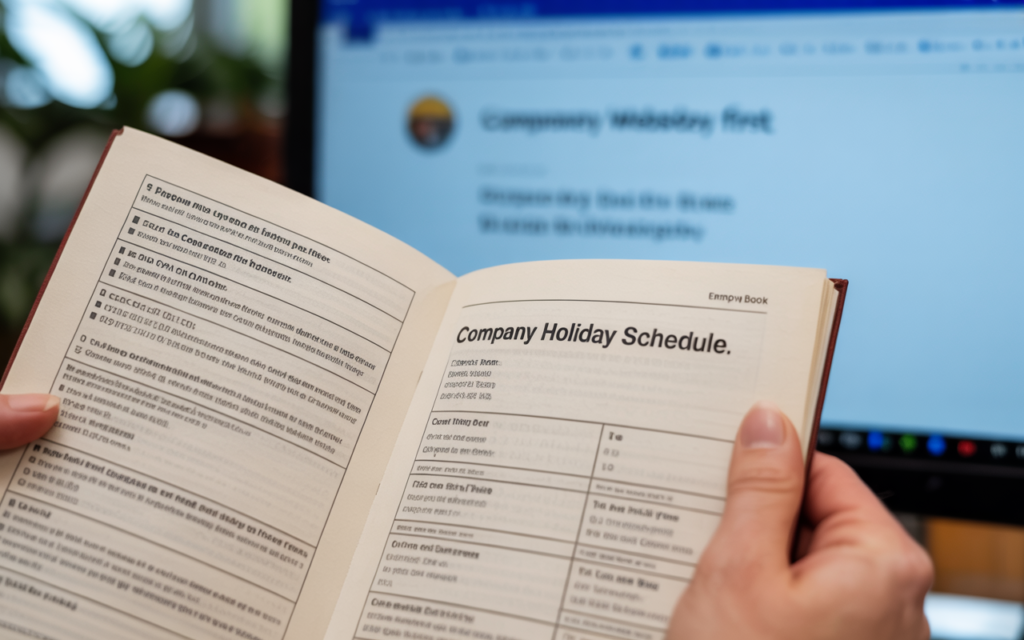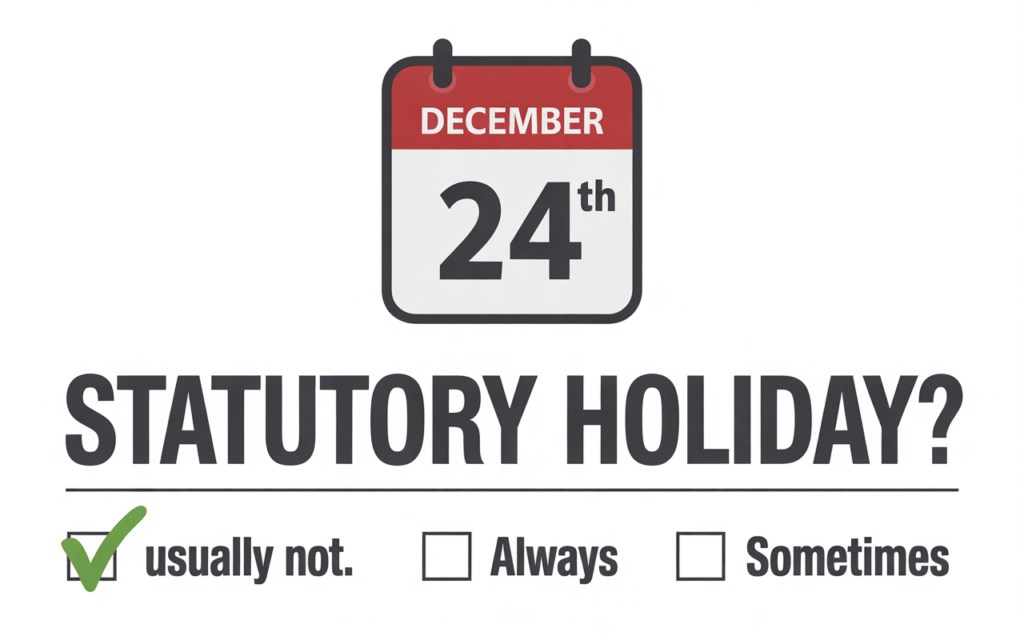As the festive season draws near, countless people begin planning their time off, leading to one of the most frequently asked questions of the holiday period: is Christmas Eve a stat holiday? While Christmas Day is a universally recognized public holiday, the status of December 24th is far more ambiguous. It’s a day wrapped in cultural significance but often lacking the legal weight of a formal holiday, creating confusion for both employees and employers.
This guide is designed to provide a clear and definitive answer to that question. We will explore the legal definitions, examine how different countries and regions approach the day, and offer practical advice for navigating workplace policies. Understanding whether is Christmas Eve a stat holiday is essential for managing your holiday schedule, knowing your rights regarding pay, and ensuring a smooth transition into the Christmas festivities.
This isn’t a simple yes-or-no question; the answer depends entirely on where you live, who you work for, and the specific laws that govern your employment. Let’s unravel the complexities surrounding this important day.
The Foundation of the Question: What Makes a Day a Stat Holiday?

Before we can properly determine if is Christmas Eve a stat holiday, it’s crucial to understand what a “stat holiday” actually is. The term is short for “statutory holiday,” which means it is a public holiday established by law—either at a national, federal, state, or provincial level. On these days, most employees are legally entitled to a paid day off. If they are required to work, they are often entitled to premium pay, such as time-and-a-half or double-time, plus a substituted day off.
The purpose of a statutory holiday is to provide a common day of rest for the workforce, often to commemorate a significant national, cultural, or religious event. This legal designation is what separates a widely celebrated day from an official, paid day off. The core of the confusion around December 24th is that while it is culturally a major part of the Christmas celebration, its legal recognition varies wildly.
This is why the question is Christmas Eve a stat holiday doesn’t have a single, universal answer. It forces us to look at specific legislation region by region. The determination of is Christmas Eve a stat holiday is a matter of law, not just tradition.
A Global Tour: Is Christmas Eve a Stat Holiday in Different Parts of the World?
The status of December 24th changes dramatically as you cross borders. What is a regular workday in one country might be a full-blown public holiday in another, highlighting the importance of location when asking, is Christmas Eve a stat holiday?

The United States: A Federal, State, and Company Puzzle
In the United States, the federal government does not officially recognize Christmas Eve as a statutory holiday. Christmas Day is one of the eleven federal holidays, meaning federal employees get a paid day off. However, Christmas Eve is not on this list. This often leads to the mistaken belief that it’s not a holiday anywhere in the country. The reality is more complex.
While it’s not a federal holiday, individual states have the authority to declare it a state-level public holiday. States like Kentucky, Michigan, North Carolina, and Texas have officially designated December 24th as a state holiday, meaning state government offices are closed and state employees get a paid day off. Other states might declare a partial holiday, with employees working a half-day. This state-by-state variance is a primary reason why answering is Christmas Eve a stat holiday in the U.S. is so complicated.
Furthermore, there is a common tradition of the U.S. President issuing an executive order to give federal employees the day off, especially if Christmas Eve falls on a weekday. This has happened frequently in recent years, but it is not a guarantee and does not make it an official, recurring stat holiday. For the vast majority of Americans working in the private sector, the question is Christmas Eve a stat holiday is answered by their employer. Many companies choose to close or offer a half-day as a gesture of goodwill, but they are not legally required to do so unless it’s a designated state holiday where they operate.
Canada: Not a National Stat Holiday
In Canada, the situation is similar to the U.S. at the national level. Christmas Day (December 25th) and Boxing Day (December 26th) are recognized statutory holidays across the country. However, the answer to is Christmas Eve a stat holiday at the federal or national level is a clear no. It is not a statutory holiday under federal law.
Jurisdiction over labor laws and public holidays in Canada is largely a provincial matter. While no province or territory designates Christmas Eve as a full statutory holiday for all workers, some have specific provisions for certain sectors. For example, in Quebec, an employee might be entitled to a paid holiday for either Christmas Eve or New Year’s Eve, depending on their employer’s choice, but not necessarily both.
For most Canadians, much like their American counterparts, getting Christmas Eve off is a benefit provided by their employer rather than a legal entitlement. The inquiry of is Christmas Eve a stat holiday in Canada almost always leads back to company policy.
Europe and Beyond: A Mix of Tradition and Law
In many European countries, Christmas Eve holds immense cultural importance, often more so than in North America. In nations like Germany, Poland, and the Scandinavian countries, December 24th is the main day for Christmas celebrations, including the primary festive meal and gift-giving. As a result, it is common for businesses to close early, and it is often treated as a de facto public holiday, even if it is not officially listed as one.
However, even here, the answer to is Christmas Eve a stat holiday legally can be nuanced. It might be a formal public holiday in one country but simply a day of customary early closure in another, governed by collective bargaining agreements rather than national law. In the United Kingdom, for example, Christmas Eve is a normal working day, though many businesses close early. The official public holidays are Christmas Day and Boxing Day. Therefore, asking is Christmas Eve a stat holiday requires specifying the exact country.
Deeper Analysis: Why Is Christmas Eve a Stat Holiday in Some Cases but Not Others?
The varying status of Christmas Eve stems from several factors, including the distinction between government and private sectors, the power of employment contracts, and the way weekends are handled.

Government vs. Private Sector Rules
As noted, there is often a significant difference in how holidays are observed for public sector (government) and private sector employees. When a state or province declares Christmas Eve a holiday, it typically only applies to its own employees and services. Private businesses within that region are not automatically required to follow suit. This is a critical point of confusion. Just because government offices are closed does not mean is Christmas Eve a stat holiday for everyone working in that area.
Private companies retain the discretion to set their own holiday schedules unless a law specifically obligates them to close or provide holiday pay.
The Power of Company Policy and Employment Contracts
For the majority of workers, the most important document for determining if is Christmas Eve a stat holiday is their employment contract or the company’s employee handbook. Many companies choose to offer Christmas Eve as a paid holiday, a “floating holiday,” or a half-day as part of their employee benefits package. They do this to improve morale, remain competitive in the job market, or because their industry naturally slows down during the festive period.
These company-specific policies are legally binding for that workplace. If your employer has designated Christmas Eve as a paid holiday in your contract, then for you, the answer to is Christmas Eve a stat holiday is yes, regardless of what the government says. This is why it’s always the first place an employee should check for an answer. The conversation around is Christmas Eve a stat holiday is often less about law and more about company culture.
The Weekend Observance Factor
Another layer of complexity is added when holidays fall on a weekend. Most jurisdictions have rules that state if a statutory holiday falls on a Saturday or Sunday, employees are entitled to a day off in lieu on the preceding Friday or the following Monday. This applies to official stat holidays like Christmas Day. However, since the answer to is Christmas Eve a stat holiday is usually no, it typically does not trigger these “in lieu of” day rules. If a company’s policy is to close on Christmas Eve and it falls on a Saturday, they are not usually obligated to provide an alternative day off unless their own policy specifies it.
This is another example of where the lack of official status for December 24th has practical consequences.
Actionable Advice: How to Get a Definitive Answer to “Is Christmas Eve a Stat Holiday?”
Given the complexity, it’s vital to know how to find the right answer for your specific situation. Here’s what you can do.

For Employees
- Start with Your Employee Handbook: Your company’s official policy document is the most reliable source of information. Look for the section on public holidays or paid time off. It should list all the days your company observes. This is the first step to finding out if is Christmas Eve a stat holiday for you.
- Talk to HR or Your Manager: If the handbook is unclear or you don’t have one, speak directly with your Human Resources department or your immediate supervisor. They can provide a definitive answer and explain the policy regarding pay and time off for that day.
- Check Your Regional Labor Laws: If you believe you might be entitled to the day off by law, consult your state, provincial, or territorial government’s labor department website. They will list all the official statutory holidays for your jurisdiction. This will help you understand if is Christmas Eve a stat holiday from a legal standpoint.
- Plan Ahead for Time Off: If you discover the answer to is Christmas Eve a stat holiday is no for your workplace, and you want the day off, you will need to request it as a vacation day. Be sure to submit your request well in advance, as many people will be asking for the same time off.
For Employers
- Create a Clear and Accessible Policy: The best way to avoid confusion is to have a written holiday policy that explicitly states which days are paid holidays. Clearly state your company’s position on whether is Christmas Eve a stat holiday.
- Ensure Legal Compliance: Be aware of all federal, state, or provincial laws that apply to your business. If you operate in a state where Christmas Eve is a designated holiday, you must comply with those regulations for your employees there.
- Communicate Proactively: Don’t wait for employees to ask. Announce your holiday schedule well in advance of the festive season. This helps with planning and shows that you are organized and considerate of your employees’ time.
- Consider the Competitive Landscape: Even if it’s not legally required, offering Christmas Eve off can be a significant employee benefit that boosts morale and helps you attract and retain top talent. The decision of whether is Christmas Eve a stat holiday for your company can be a strategic one.
The Cultural vs. Legal Reality: Why Is Christmas Eve a Stat Holiday So Infrequently?

The primary reason why the answer to is Christmas Eve a stat holiday is usually “no” lies in the divide between its cultural role and its legal one. Christmas Day is widely recognized as the main event, rooted in deep religious and cultural tradition as a day of celebration and rest. Christmas Eve, by contrast, has historically been a day of preparation, vigil, and travel. While it is a day of immense excitement and festivity, its function as a lead-up to the main holiday has kept it from receiving the same level of legal recognition.
Furthermore, economic factors play a huge role. Christmas Eve is one of the busiest shopping days of the year. Forcing all retail and service businesses to close by making is Christmas Eve a stat holiday would have a significant negative economic impact. Governments are generally reluctant to create new statutory holidays that would disrupt commerce so profoundly, especially when many businesses already choose to close early voluntarily.
This economic reality is a major barrier to the broader legal recognition of December 24th. The conversation around is Christmas Eve a stat holiday cannot ignore the economic implications for retail and hospitality sectors.
The Final Verdict on This Enduring Question

So, after exploring all the layers, we return to our central inquiry: is Christmas Eve a stat holiday? The definitive answer is that in most legal jurisdictions, it is not. Its status is primarily determined by employer policy, regional customs, or specific state/provincial laws, rather than being a universally recognized statutory holiday like Christmas Day.
While the cultural significance of Christmas Eve continues to grow, its legal status has not kept pace. For anyone needing a clear answer, the path is straightforward: look to your local laws and, most importantly, your own employer’s official policy. For now, while the festive cheer on December 24th is undeniable, its standing as an official day off remains the exception rather than the rule. The discussion of is Christmas Eve a stat holiday highlights the fascinating intersection of law, culture, and commerce that defines our modern holiday calendar.